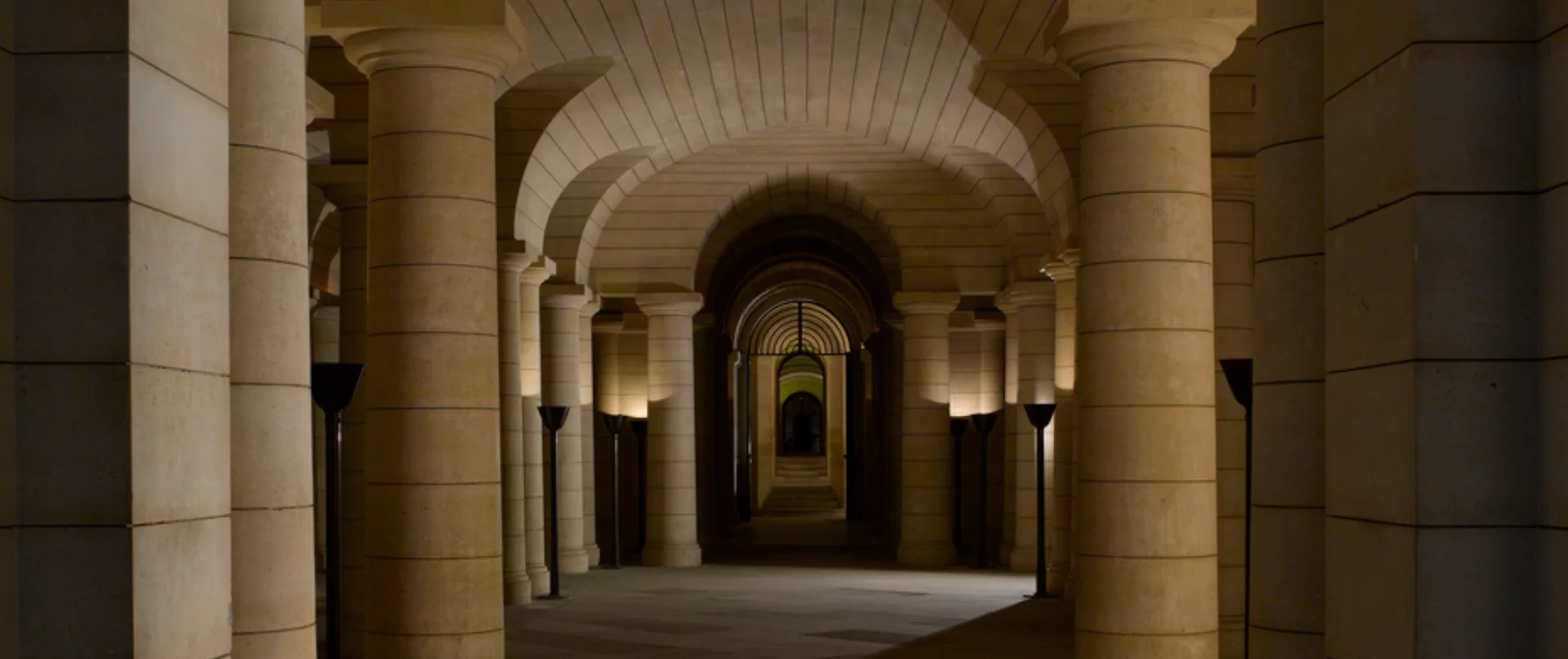A must-see
article | Reading time8 min
A must-see
article | Reading time8 min
In the heart of the Sainte-Geneviève mountain, do not miss the crypt of the Panthéon, the last resting place of the great personalities honored by the nation.
Philosophers of the Enlightenment, dignitaries of the Empire, writers, scientists, resistance fighters: the concept of the "Great Man" receiving the honors of the Panthéon has not always been the same throughout history, especially during the Napoleonic era: half of the personalities buried in the crypt are dignitaries of the Empire, most of whom are now largely unknown.
Apart from this period of the Empire, the exemplary commitment to the values of the Republic, such as liberty, justice, equality, tolerance and peace, is at the heart of the recognition of the "Great Man".
The philosophers Voltaire and Rousseau, eminent representatives of the Age of Enlightenment, entered the Panthéon in 1791 and 1794 respectively.
Under the Third, Fourth and Fifth Republics, the exemplary commitment recognized by the country is that of Victor Hugo, but also that ofEmile Zola, Jean Jaurès, Victor Schœlcher or Jean Moulin, to name but a few of the Great Men.
Women have long been absent from the Panthéon. In 1995, Marie Curie was the first woman to enter the Panthéon for her own merits. Four other women have since joined her, gradually paving the way for a more just place for women in the Panthéon: Geneviève de Gaulle-Anthonioz, Germaine Tillion, Simone Veil and, most recently, Joséphine Baker.
© Caroline Rose / Centre des monuments nationaux
Not all the personalities honored at the Panthéon are buried in the crypt. Tributes can be expressed by the presence of a cenotaph, for example for Joséphine Baker, or by an inscription, as for Aimé Césaire.
Tributes in the form ofinscriptions are mostly individual, but can also be collective, as for the Righteous of France.
© Benjamin Gavaudo / Centre des monuments nationaux
In 1791, it is the Constituent Assembly, which created the Panthéon, which chooses the personalities worthy of receiving the honors of the Republic.
During the First Empire, the decision was made by Napoleon Bonaparte.
During the Third and Fourth Republics, the choice was made by Parliament .
Finally, since the beginning of the Fifth Republic, in 1958, the decision is made by the President of the Republic.
© Caroline Rose / Centre des monuments nationaux
Although the criteria for a pantheonization are not defined by any text, there are certain conditions for a personality to benefit from the nation's recognition. On the one hand, it is important that he or she has embodied the values of the Republic in an exemplary way, through his or her writings, commitments or actions. On the other hand, it is necessary that he or she, during his or her lifetime, or his or her descendants, have approved the principle of entry into the Panthéon.
After the official announcement of a pantheonization by the President of the Republic, the ceremony of entry into the Panthéon is intensively prepared, in about three months.
© Caroline Rose / Centre des monuments nationaux











